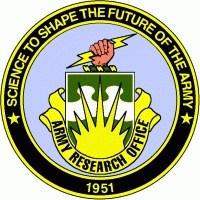
Professor Igor Mezic currently leads an ARO MURI initiative to apply the Koopman operator to analysis, prediction, inference, and control of systems.
He is joined by research groups from Cal Tech, Johns Hopkins, MIT, University of Washington, and University of Michigan.
From Data-Driven Operator Theoretic Schemes to Prediction, Inference, and Control of Systems
Many real-world systems, including turbulence, network dynamics, neuroscience, locomotion, and epidemiology, are characterized by high-dimensional, nonlinear, and multi-scale phenomena. The complexity of these systems limits our ability to infer, predict, and eventually control, their behavior. Most methods in optimal estimation and control are developed using state (phase)-space methodology. Nonlinear behavior is studied as a perturbation of linearized equations around attractors and heteroclinic orbits. These methods are fundamentally limited in many applications, such as those we propose to study here, in network dynamics, locomotion and fluid-structure interaction, that are strongly nonlinear and are characterized by intermittent and transient dynamics. A recent - spectral expansion based - development, that enabled progress in such high-dimensional nonlinear systems, is rooted in the operator-theoretic approach to dynamical systems.
We are developing a comprehensive theory that pertains not only to analysis of high dimensional systems, but also to inference from data, prediction and control for such systems. We will study systems in which we have a model - e.g. the Navier-Stokes equation for fluid flow, and no model - just data streaming either from physical sensors, or even unstructured data. In both cases the key is an efficient way to find the correct variables of description for these systems via spectral properties of associated operators.
Approach
The main theory topics we are pursuing to expand the current reach of spectral expansion analysis are:
1) Stability theory for general attractors; treatment of continuous spectrum;
2) Uncertainty analysis and spectral expansion theory of the Perron-Frobenius operator for observable evolution;
3) Extensions to inference, prediction and control;
4) Spectral expansions for finite-time analysis;
5) Hybrid systems.
The main numerical analysis topics we are pursuing to expand the current reach of spectral expansion analysis:
1) Proofs of convergence of finite-dimensional approximations to spectral objects of the infinite-dimensional Koopman and Perron-Frobenius operators;
2) Algorithms for finite-time analysis in non-autonomous and control systems;
3) Algorithms for extraction of finite-dimensional models from data for inference, prediction and control;
